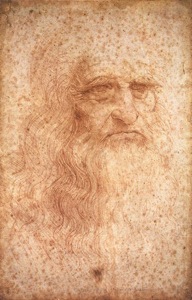It doesn’t matter how old you get, there is always something new to learn. Sometimes these new things are words or concepts you have heard all your life, but perhaps you never understood. Learn Something New is a series that will highlight some of the things I learn, big and small in the coming days. — Douglas
Polymath is another word that has been popping up a lot in my book, magazine and only reading. I am humbled that it has been applied to all of our family at one time or another. I have always believed that is it good to know a little about a lot, but also know a lot about certain areas in your life. I cultivate learning at all times and in all aspects. Certain topics will take my interest so much that I “go down the rabbit hole” with Alice and spend a bit of time exploring all the aspects of a particular world like coffee, beekeeping, beer and more. I think all of us in the family have a similar trait. We adore history, science, technology, theater, and literature in differing levels, but with the same breadth of study.
There term Renaissance Man is a common synonym, too and Leonardo Da Vinci is probably one of the best known and often used examples.
A polymath (Greek: πολυμαθής, polymathēs, “having learned much”)[1] is a person whose expertise spans a significant number of different subject areas; such a person is known to draw on complex bodies of knowledge to solve specific problems. The term was first used in the seventeenth century but the related term,polyhistor, is an ancient term with similar meaning.
The term is often used to describe those great thinkers of the Renaissance and the Golden Age of Islam,[2] each of whom excelled at several fields in science and the arts, including such individuals as Leonardo da Vinci, Michelangelo, Galileo Galilei, Paolo Sarpi,[3] Nicolaus Copernicus, Francis Bacon, Thomas Browne, Michael Servetus,[4] Ibn al-Haytham,[5][6] Ibn Sina,[6][7] and Omar Khayyám.[8]
In Renaissance Italy, the idea of the polymath was expressed by one of its most accomplished representatives, Leon Battista Alberti (1404–1472), in the statement that “a man can do all things if he will.”[9] Embodying a basic tenet of Renaissance humanism that humans are limitless in their capacity for development, the concept led to the notion that people should embrace all knowledge and develop their capacities as fully as possible. This was expressed in the term “Renaissance man” which is often applied to the gifted people of that age who sought to develop their abilities in all areas of accomplishment: intellectual, artistic, social and physical. This term entered the lexicon during the twentieth century and has now been applied to great thinkers living before and after the Renaissance. — Wikipedia
More information on Polymath:
- Polymath on Wikipedia
- Anyone can learn to be a polymath in Aeon Magazine
- Polymath at Oxford Dictionaries
Previously on Learn Something New:








